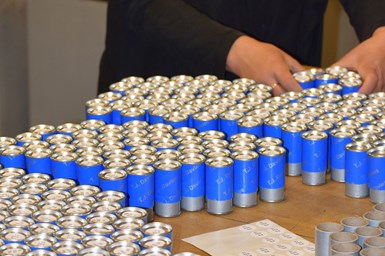TJ Davies Retention Knobs Enable High Pull Force
The company’s retention knobs are manufactured from American-made 8620 alloy that is treated with hot black oxide to military specifications for protection against corrosion.
Share





TJ Davies retention knobs are manufactured from American-made 8620 alloy steel that is machined in-house with single point threading to imperial (Class 2A UNC) or metric (Class G6) specifications.
The use of 8620 alloy steel means the components will harden over time, rather than becoming brittle. After threading is completed, each component is heat treated to 58-62 HRC to a depth of 0.020 to 0.030, then treated with hot black oxide to military specifications for protection against corrosion. Each retention knob is magnetic particle tested and then pull tested to 2.5 times the pulling force of the drawbar it is designed for. Full depth is also attained for each thread, and because all machining is done with a single setup, concentricity is achieved.
No carb is applied to the coolant through hole to ensure there is no shrinkage. Core hardness of 40 HRC is standard. All retention knob surfaces have a precision finish of 32 RMA micro or better, ISO grade 6N. Certifications are maintained for each step and each batch to ensure traceability and quality control.
Overtightening can overly stress the retention knob, leading to premature failure, and can cause toolholder swelling and expansion. TJ Davies provides recommended torque guidelines with each retention knob shipped.
Related Content
-
Rego-Fix’s Center for Machining Excellence Promotes Collaboration
The new space includes a showroom, office spaces and an auditorium that will enhance its work with its technical partners.
-
How to Mitigate Chatter to Boost Machining Rates
There are usually better solutions to chatter than just reducing the feed rate. Through vibration analysis, the chatter problem can be solved, enabling much higher metal removal rates, better quality and longer tool life.
-
Five Common Mistakes Shops Make with ER Collets (And How to Prevent Them)
Collets play a crucial role in the machining process, so proper tool assembly and maintenance is important. Here are five potential pitfalls to avoid when using ER collets.






















